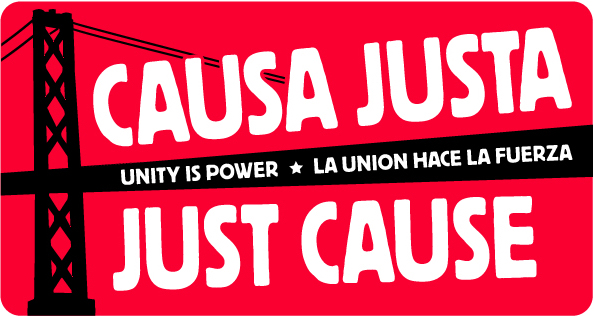Movement to pass TRUST Act spurs new guidelines from ICE, but few families will be kept together in practice
Announcement underscores need for Gov. Brown to sign TRUST Act to fill in significant gaps in policy
On Friday, Dec. 21, the Immigration and Customs Enforcement Agency (ICE) announced revisions to the controversial Secure Communities deportation program and immigration detainer requests.
In response to the announcement, Reshma Shamasunder, Executive Director of the California Immigrant Policy Center, issued the following statement:
“[Friday’s] announcement by ICE regarding the S-Comm program reaffirms what immigrant advocates have been calling for after several years of watching the program’s disastrous results in communities throughout California: S-comm is a program that should be scrapped because it makes no one safer and tears families apart. It further validates the painful experiences of ice cream and tamale vendors, domestic violence survivors, and so many other community members who have unfairly faced deportation.
Hiding in the fine print of the announcement are significant loopholes that mean that in practice, the program will continue to undermine community confidence in law enforcement and will continue to result in unjust detentions of aspiring citizens (or citizens, for that matter.)
The guidelines do not reflect our cherished value of due process – of the right to a day in court –and rely on a pre-conviction model that will still trap survivors of domestic violence and other crime victims and witnesses in deportations. The guidelines also continue to confuse criminal matters with immigration violations, meaning many people who aspire to become citizens but have previously been hurt by dysfunctional immigration policies will continue to be held for deportation. A mother seeking only to support her children, or a young person seeking to return to the only home they have ever known after an unjustified deportation, should not be subject to the S-Comm dragnet.
 Friday’s announcement – and the grim figure of over 409,000 deportations nationally this year, a new record of shattered families and broken trust – underscores the need for California to take further action to uphold our values of due process and family unity.
Friday’s announcement – and the grim figure of over 409,000 deportations nationally this year, a new record of shattered families and broken trust – underscores the need for California to take further action to uphold our values of due process and family unity.
With swift passage of the TRUST Act (AB – Ammiano), a strong, statewide standard to limit burdensome ICE hold requests, we will truly rebuild community confidence in law enforcement, save local resources, and keep families together.
ICE DETAINER REFORMS AT A GLANCE
What the New Guidance Does:
Directs ICE to stop issuing detainers for people who have been arrested for low
level misdemeanors or infractions AND:
-have no prior convictions for any felonies or serious misdemeanors
-have not been convicted for three or more non-traffic misdemeanors
-have never been ordered deported or removed
-have never been convicted of illegal entry or found to have committed
immigration fraud
-don’t pose a “significant threat to public safety”
-are not “suspected terrorists” or “known gang members”
- Allows ICE to continue to issue detainers for everyone else, including:
- Anyone charged with a felony or serious misdemeanor (regardless of the
- outcome of the charges)
- Anyone with a prior order of deportation or removal
- Requires a six-month review of the guidance’s effectiveness
What the New Policy Doesn’t Do:
Define clearly what types of misdemeanors it covers. ICE says detainers will
continue to be issued for anyone who is charged with or has been convicted of a
misdemeanor that involves violence, threats, assault, sexual abuse or exploitation,
DUI, leaving the scene of an accident, unlawful possession of a deadly weapon, drug
distribution or trafficking, or “other significant threat to public safety.” ICE does not
provide a specific list of crimes it believes fall under these categories.
Put any constraints on Customs and Border Patrol. CBP is specifically not covered
by this policy.

